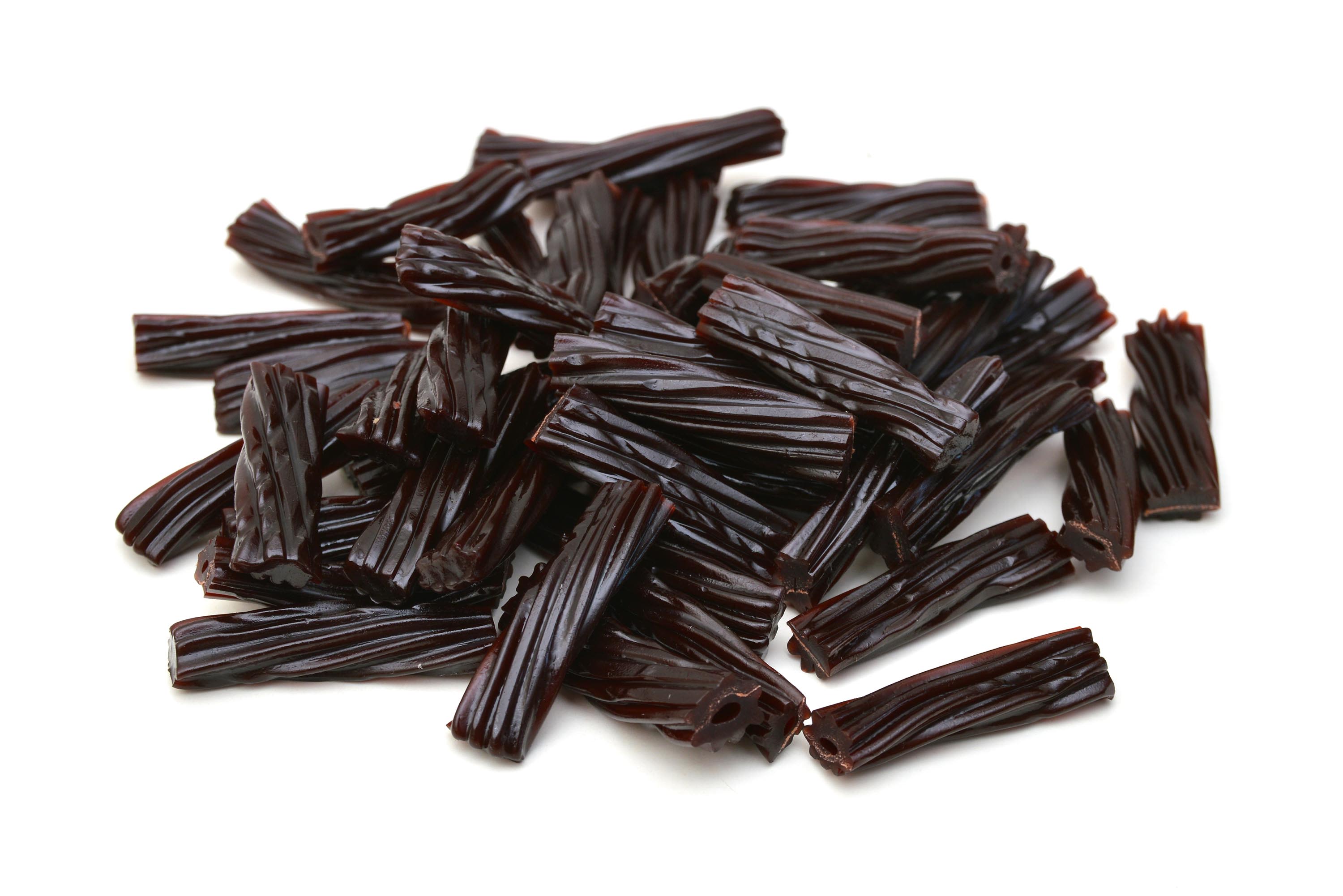
Licorice is a popular and unique flavor that has been enjoyed for centuries in a variety of forms, ranging from candies and teas to medicinal remedies. This distinctive taste, derived from the root of the licorice plant, has intrigued people all over the world. But beyond its delicious flavor, licorice also holds some fascinating facts that you may not be aware of. From its historical significance to its potential health benefits, there are numerous interesting aspects about licorice that deserve attention. In this article, we will delve into 14 intriguing facts about licorice, shedding light on its origins, uses, and much more. So, if you’re ready to expand your knowledge about this captivating flavor, let’s dive in and explore the wonderful world of licorice!
Key Takeaways:
- Licorice, derived from a plant root, has been used for centuries in traditional medicine and as a flavoring agent in candies and teas. It has potential health benefits but should be consumed in moderation.
- Licorice is a natural sweetener with anti-inflammatory and potential anti-viral properties. However, excessive consumption can lead to health risks, so it’s best enjoyed in moderation and as part of a balanced diet.
Licorice is derived from the root of the Glycyrrhiza glabra plant.
Licorice, often referred to as “liquorice,” is a popular plant-based flavoring agent that comes from the root of the Glycyrrhiza glabra plant. This plant is native to parts of Asia and Europe.
Licorice has been used for centuries for its medicinal properties.
For centuries, licorice has been valued for its medicinal properties. It has been used in traditional Chinese and Ayurvedic medicine to treat various ailments, including digestive issues, respiratory problems, and skin conditions.
Licorice flavor is derived from a compound called glycyrrhizin.
The distinct taste of licorice comes from a compound called glycyrrhizin, which is found in the root of the licorice plant. This compound gives licorice its characteristic sweet and slightly bitter flavor.
Licorice is used as a flavoring agent in many candies and beverages.
Due to its unique flavor, licorice is often added to candies, chewing gums, and beverages. It is commonly used in the production of licorice candies, licorice twists, and licorice-flavored beverages like root beer.
Licorice root is also used in herbal teas.
Licorice root is a common ingredient in herbal teas. It adds a natural sweetness to the tea and is often blended with other herbs and spices to create unique flavor combinations.
Licorice has been used to relieve symptoms of cough and sore throat.
Licorice has long been used as a natural remedy to soothe coughs and relieve sore throats. Its soothing properties can help reduce throat irritation and provide temporary relief from coughing.
Excessive consumption of licorice can have health risks.
While licorice has some health benefits, consuming large amounts of licorice or using licorice supplements for extended periods can have potential health risks. It can lead to imbalances in electrolytes, high blood pressure, and other adverse effects.
Licorice has anti-inflammatory properties.
Studies have shown that licorice exhibits anti-inflammatory properties. It contains compounds that can help reduce inflammation in the body and may be beneficial for conditions like arthritis and digestive disorders.
Licorice root extract is used in skincare products.
Licorice root extract is often used in skincare products due to its potential skin-soothing and brightening properties. It is believed to help reduce redness, calm irritated skin, and fade dark spots.
Licorice is a natural sweetener.
Due to its natural sweetness, licorice can be used as a sugar substitute in certain recipes. It provides a unique flavor profile and can be a healthier alternative to refined sugar.
Licorice has been associated with increased cortisol levels.
Research suggests that excessive consumption of licorice can increase cortisol levels in the body. Cortisol is a stress hormone, and elevated levels over a prolonged period may have negative health effects.
Licorice-flavored products are enjoyed worldwide.
Licorice-flavored candies, beverages, and other products are popular in many countries around the world. Different cultures have their own unique take on licorice-based treats, adding their own twist to the flavor.
Licorice has been used in traditional medicine for its potential anti-viral properties.
In traditional medicine, licorice has been used for its potential anti-viral properties. Some studies suggest that certain compounds found in licorice may help inhibit the growth of viruses, including those responsible for cold sores and influenza.
Licorice has a long history of use in herbal remedies.
Licorice has been a staple ingredient in traditional herbal remedies for centuries. It has been used to promote digestive health, support the respiratory system, and even as a natural remedy for PMS symptoms.
Conclusion
In conclusion, licorice is a unique and fascinating treat that has been enjoyed for centuries. Its distinct flavor and potential health benefits make it a popular choice among candy lovers and herbal medicine enthusiasts alike. From its origins in ancient civilizations to its modern-day popularity, licorice continues to captivate people with its rich history and diverse uses. Whether you enjoy it in the form of candy, tea, or supplements, it’s clear that licorice has made its mark in the culinary and medicinal world. So, the next time you reach for a piece of licorice, remember the fascinating facts and stories behind this delightful treat.
FAQs
Q: What is licorice?
A: Licorice is a root plant native to the Mediterranean region that has been used for its flavor and medicinal properties for centuries.
Q: Is licorice only used in candy?
A: While licorice is commonly associated with candy, it is also used to flavor many beverages, such as teas and liqueurs, and is used in traditional medicine and herbal remedies.
Q: Does licorice have any health benefits?
A: Licorice has been used for its potential health benefits, including soothing digestive issues, supporting respiratory health, and promoting adrenal gland function.
Q: Can everyone enjoy licorice?
A: Licorice should be consumed in moderation as excessive consumption may have adverse effects, particularly for individuals with high blood pressure or certain medical conditions.
Q: Are all licorice candies made with real licorice root?
A: Not all licorice candies are made with real licorice root. Some candies are flavored with anise oil, which mimics the taste of licorice.
Q: Can licorice be harmful?
A: While licorice has potential health benefits, consuming large amounts of licorice or using licorice supplements for extended periods may result in side effects, such as high blood pressure and potassium imbalances.
Q: Can licorice interact with medications?
A: Licorice may interact with certain medications, such as blood thinners, diuretics, and medications for high blood pressure. It’s important to consult with a healthcare professional if you have any concerns.
Q: Are there different varieties of licorice?
A: Yes, there are various types of licorice, including black licorice, red licorice (which is actually not made with licorice at all), and licorice candies infused with other flavors.
Q: Is licorice suitable for vegetarians and vegans?
A: Most licorice candies and products are vegetarian and vegan-friendly. However, it’s always a good idea to check the ingredients label to ensure there are no animal-derived ingredients.
Q: Can licorice be addictive?
A: Licorice contains compounds that may have addictive properties. However, occasional consumption of licorice as a treat is unlikely to lead to addiction.
Licorice lovers, your taste buds will dance with delight as you explore more tantalizing facts. Unravel the extraordinary secrets of black licorice's unique flavor profile and culinary versatility. Nutrition enthusiasts, satisfy your curiosity about Red Vines licorice's dietary composition and how it compares to other snacks. Health-conscious readers, dig deeper into red licorice's nutritional breakdown, including its calorie count, sugar content, and potential benefits or drawbacks. Whether you prefer the bold taste of black licorice or the sweet, chewy goodness of red licorice, these engaging articles will take your knowledge and appreciation to new heights.
Was this page helpful?
Our commitment to delivering trustworthy and engaging content is at the heart of what we do. Each fact on our site is contributed by real users like you, bringing a wealth of diverse insights and information. To ensure the highest standards of accuracy and reliability, our dedicated editors meticulously review each submission. This process guarantees that the facts we share are not only fascinating but also credible. Trust in our commitment to quality and authenticity as you explore and learn with us.


